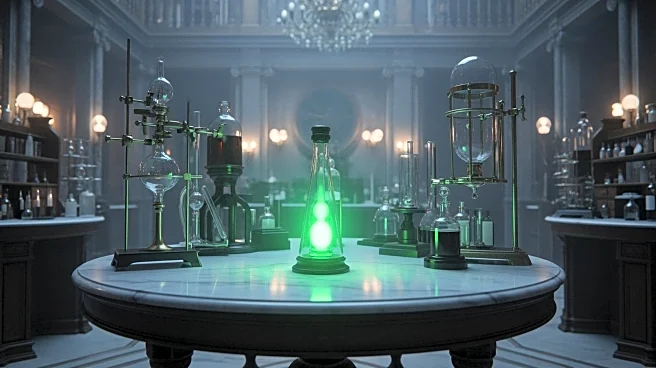What's Happening?
Guillermo del Toro's adaptation of Mary Shelley's 'Frankenstein' is now available on Netflix, showcasing the director's signature style of blending compassion with horror. Known for his work on 'The Shape of Water' and 'Hellboy,' del Toro brings a visually
stunning rendition of the classic novel, emphasizing practical effects and grand set designs. Despite the film's opulence, critics note that the narrative feels constrained by its adherence to the original story. Oscar Isaac stars as Victor Frankenstein, while Jacob Elordi portrays the Creature, delivering performances that highlight the film's thematic depth.
Why It's Important?
Del Toro's 'Frankenstein' represents a significant investment in cinematic artistry, with Netflix providing a substantial budget for the project. The film's focus on practical effects and detailed set design offers a refreshing contrast to the prevalent use of CGI in modern cinema. However, the adaptation's fidelity to Shelley's novel may limit its creative potential, impacting audience engagement. Del Toro's approach underscores the challenges of balancing artistic vision with narrative innovation, highlighting the complexities of adapting classic literature for contemporary audiences.
Beyond the Headlines
The film's exploration of themes such as humanity, creation, and revenge resonates with current societal issues, offering a lens through which viewers can reflect on ethical and philosophical questions. Del Toro's dedication to honoring the source material raises discussions about the role of adaptation in preserving literary heritage while fostering new interpretations. The film's reception may influence future projects, encouraging filmmakers to experiment with narrative structures and thematic elements in adapting classic works.















